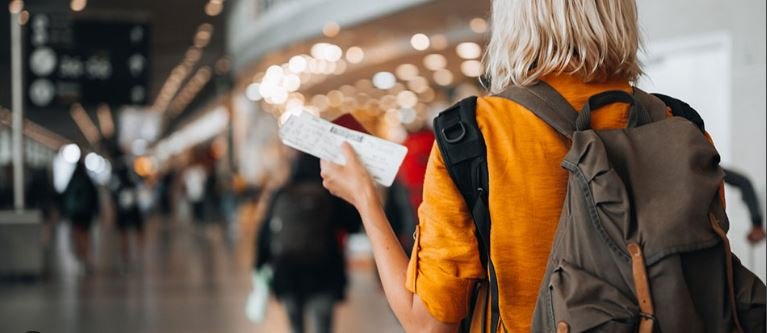Health and safety should be top priorities when embarking on any travel adventure. Proper planning and precautionary measures can ensure a smooth and enjoyable journey. Whether you’re traveling domestically or internationally, staying informed and prepared is crucial for a safe trip. Here are some essential health and safety tips for travelers.

Research Your Destination
Research your destination thoroughly before you travel. Understand the local health and safety conditions, including prevalent diseases, vaccination requirements, and local laws. Websites like the Centers for Disease Control and Prevention (CDC) and the World Health Organization (WHO) provide valuable information. Knowing what to expect can help you prepare adequately and avoid potential risks. Additionally, familiarize yourself with the local customs and culture to avoid misunderstandings and respect local traditions.
Stay Up-to-Date with Vaccinations
Ensure that you are up-to-date with all required vaccinations before you travel. Some destinations may require specific vaccinations, such as yellow fever or typhoid, for entry. Consult your healthcare provider well in advance to receive necessary immunizations. Additionally, carry a copy of your vaccination records while traveling. Staying current with vaccinations not only protects you but also helps prevent the spread of diseases.
Pack a Comprehensive First Aid Kit
A well-stocked first aid kit is essential for any trip. Include items such as band-aids, antiseptic wipes, pain relievers, motion sickness medication, and any prescription medications you need. Additionally, pack items like insect repellent, sunscreen, and hand sanitizer. Being prepared for minor injuries and illnesses can save you time and stress during your travels. Moreover, knowing basic first aid can be invaluable in an emergency situation.
Practice Food and Water Safety
Food and waterborne illnesses are common concerns for travelers. To avoid getting sick, drink bottled or filtered water and avoid ice in drinks unless you are sure of its source. Be cautious with street food and eat at reputable establishments. Ensure that food is thoroughly cooked and served hot. Wash your hands frequently, especially before eating. Taking these precautions can significantly reduce your risk of gastrointestinal issues.
Protect Yourself from Insects
Insect bites can transmit diseases like malaria, dengue fever, and Zika virus. Use insect repellent containing DEET or picaridin on exposed skin and clothing. Wear long sleeves and pants, especially in areas with high mosquito activity. Sleep under a mosquito net if you’re in an area where mosquito-borne diseases are prevalent. Additionally, avoid stagnant water, where mosquitoes are likely to breed. These measures can help prevent insect bites and related illnesses.
Stay Aware of Your Surroundings
Personal safety is crucial when traveling. Stay aware of your surroundings and keep an eye on your belongings at all times. Avoid displaying valuable items like expensive jewelry or electronics, which can attract thieves. Use a money belt or hidden pouch to secure your money and important documents. Be cautious when using ATMs and only withdraw money from secure, well-lit locations. Trust your instincts and avoid situations that make you feel uncomfortable.
Have a Travel Insurance Plan
Invest in a comprehensive travel insurance plan that covers medical emergencies, trip cancellations, and lost luggage. In case of an emergency, having travel insurance can save you from significant financial losses and ensure you receive the necessary medical care. Make sure you understand the coverage details and carry a copy of your insurance policy while traveling. Additionally, know the emergency contact numbers for your insurance provider.
Stay Connected
Stay connected with family and friends during your trip. Share your itinerary and contact details with someone you trust. Check in regularly, especially if you’re traveling alone. Keep your phone charged and carry a portable charger. Additionally, know the local emergency numbers and the location of the nearest embassy or consulate. Staying connected ensures that someone knows your whereabouts and can assist you if needed.
Practice Safe Transportation
Choose reliable and safe transportation options. Use reputable taxi services or rideshare apps instead of hailing cabs on the street. If you’re renting a car, ensure it’s in good condition and familiarize yourself with local driving laws. Wear seat belts at all times and avoid traveling in unsafe areas, especially at night. Additionally, be cautious when using public transportation and keep your belongings secure.
Conclusion
In conclusion, prioritizing health and safety during your travels ensures a smooth and enjoyable experience. By researching your destination, staying up-to-date with vaccinations, and packing a comprehensive first aid kit, you can be well-prepared. Practicing food and water safety, protecting yourself from insects, and staying aware of your surroundings are essential precautions. Additionally, having a travel insurance plan, staying connected, and practicing safe transportation further enhance your travel safety. With these tips, you can confidently explore new destinations while maintaining your health and safety.
